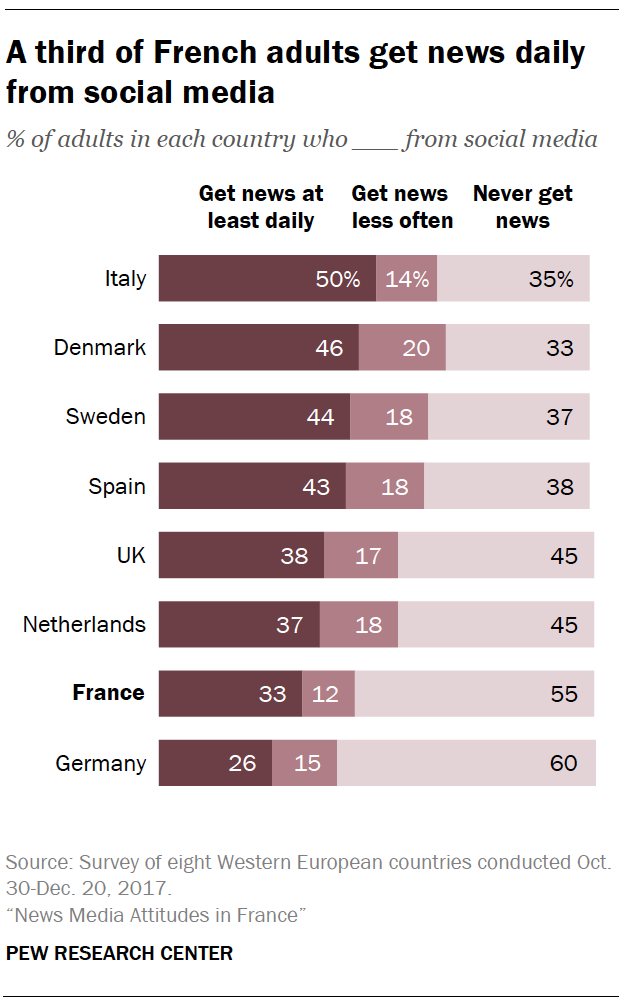 Within the online space, many Western Europeans get news through social media. Facebook is by far the most commonly used social media site for news.
Within the online space, many Western Europeans get news through social media. Facebook is by far the most commonly used social media site for news.
Compared with other Western European countries, getting news from social media is less common in France. Fewer than half of French adults (45%) get news from social media sites, while 55% never get news there.
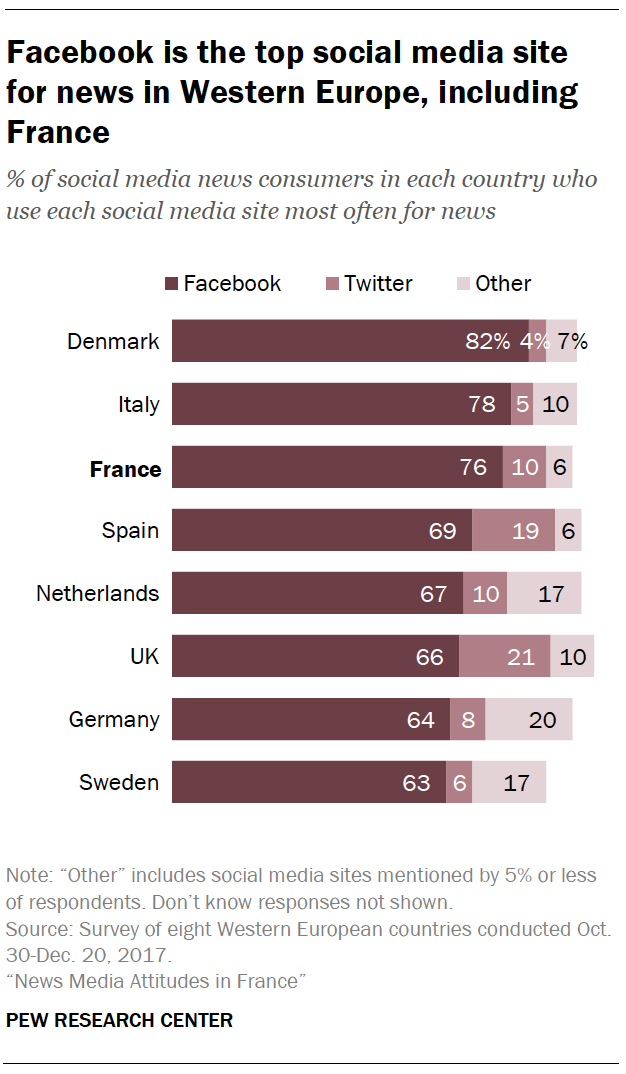 Facebook is the most common social network used for news across Western Europe, including in France. About three-quarters of social media news consumers in France (76%) cite Facebook as the social network they get news from most often.
Facebook is the most common social network used for news across Western Europe, including in France. About three-quarters of social media news consumers in France (76%) cite Facebook as the social network they get news from most often.
Facebook is followed distantly by Twitter, which is cited by one-in-ten social media news consumers in France as the social media site they use most often for news.
In a separate question that asked individuals to volunteer the outlet they use as their main source for news, 4% of French adults name Facebook as that source, speaking further to its prominence.
About half or more social media news consumers in each of the eight countries surveyed say they are familiar with the sources they see on social media. Still, sizable minorities say they typically do not pay attention to the sources of news they encounter there.
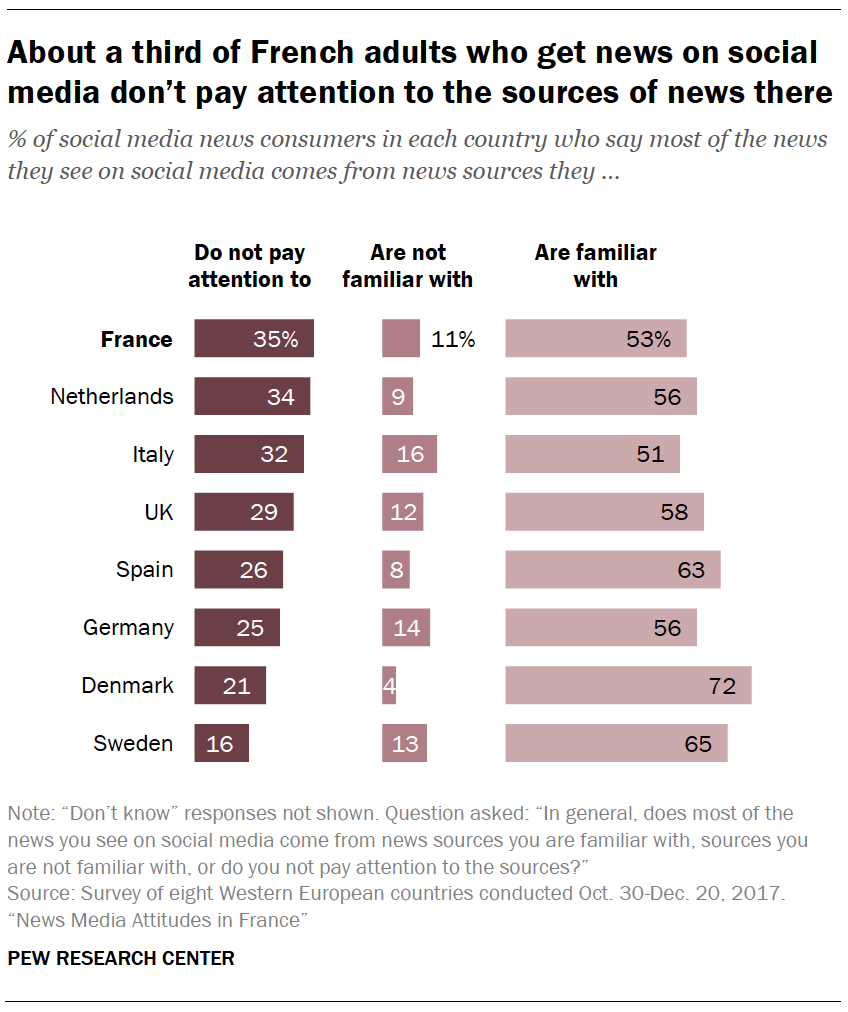 Among the countries surveyed, France has the highest share of social media news consumers – 35% – who say they do not pay attention to the sources of news they see on social media. About half (53%) say they are familiar with the news sources they find on these sites, and only 11% say they are unfamiliar with them.
Among the countries surveyed, France has the highest share of social media news consumers – 35% – who say they do not pay attention to the sources of news they see on social media. About half (53%) say they are familiar with the news sources they find on these sites, and only 11% say they are unfamiliar with them.
Looking deeper into these responses, the frequency of social media news use connects to the likelihood of recognizing familiar sources. Those who get news from social media at least daily are more likely than those who get news from these sites less often to be familiar with the news sources they see there. This is true in all eight countries, with differences in France among the largest. More than half of daily social media news consumers in France (58%) say they are familiar with the news sources they encounter there, compared with 38% of less frequent consumers.
Most people are exposed to a variety of political views on social media. Across all eight nations surveyed, solid majorities of social media news consumers say the news they see on social media is rarely or only sometimes in line with their own political views. France is among the highest, at 83%. Conversely, about one-in-ten social media news consumers in France (11%) say the news they see on these sites is often in line with their political views.
The “echo chamber” effect is more common when it comes to personal discussions about the news: About a quarter of French adults (26%) say the views they hear in personal discussions are often in line with their own.
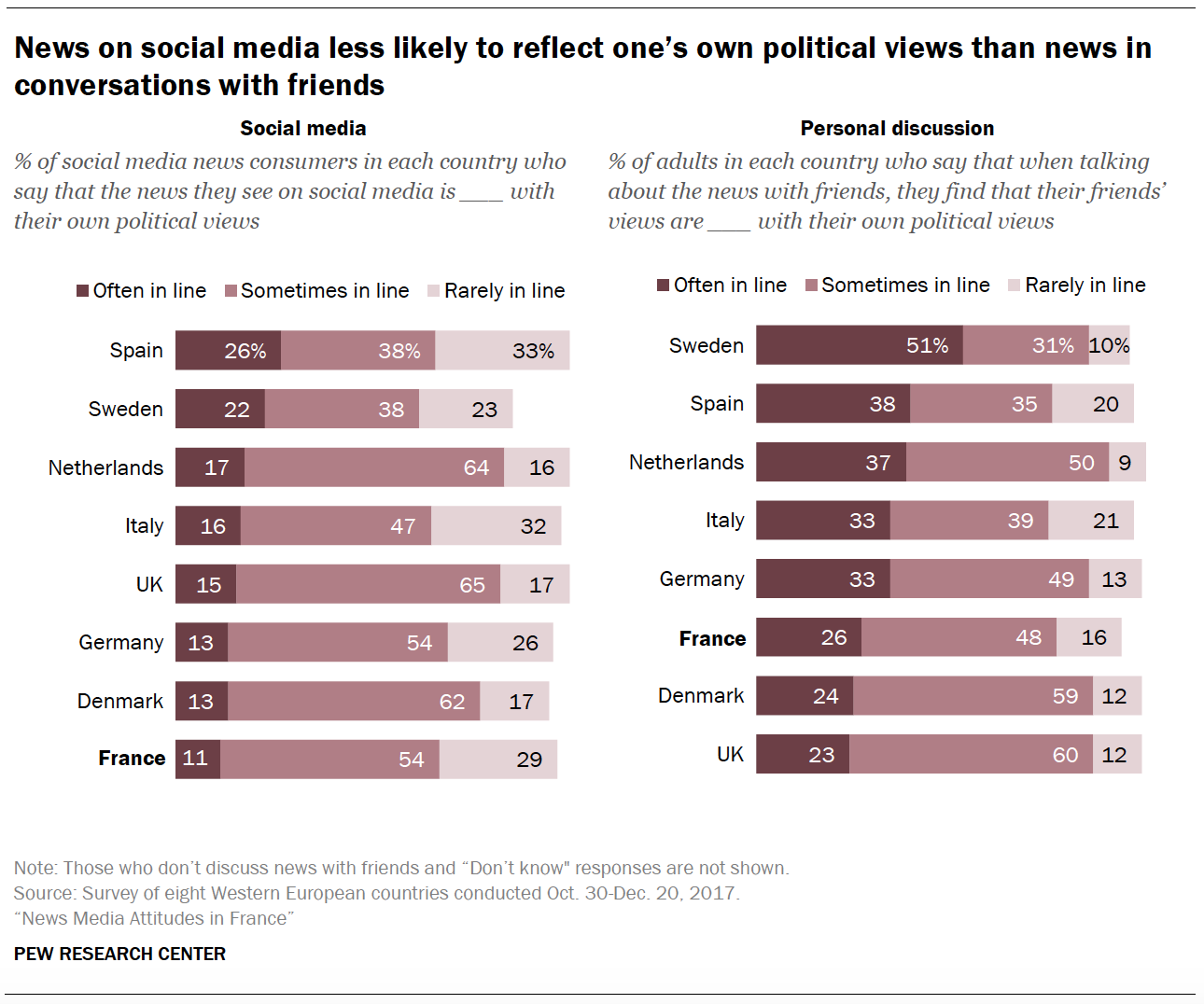
Social media news habits by age and education
 Younger people tend to be more avid social media news consumers than their elders. This is especially the case in France. Roughly seven-in-ten 18- to 29-year-olds (69%) get news from social media every day, while 38% of those ages 30 to 49 and an even smaller portion of those 50 and older (17%) do the same – a 52-percentage-point gap between the youngest and oldest age groups.
Younger people tend to be more avid social media news consumers than their elders. This is especially the case in France. Roughly seven-in-ten 18- to 29-year-olds (69%) get news from social media every day, while 38% of those ages 30 to 49 and an even smaller portion of those 50 and older (17%) do the same – a 52-percentage-point gap between the youngest and oldest age groups.
Younger social media news consumers are also more likely to be familiar with the news sources they see on these sites. Six-in-ten adults ages 18 to 29 who get news from social media say that most of the news they encounter there comes from sources with which they are familiar, compared with 43% of those 50 and older. On the other hand, older social media news consumers are more likely to say that they do not pay attention to these news sources. Among social media news consumers ages 50 and older, 44% say they do not pay attention to news sources on these sites, while about a quarter of social media news consumers ages 18 to 29 (28%) say the same.
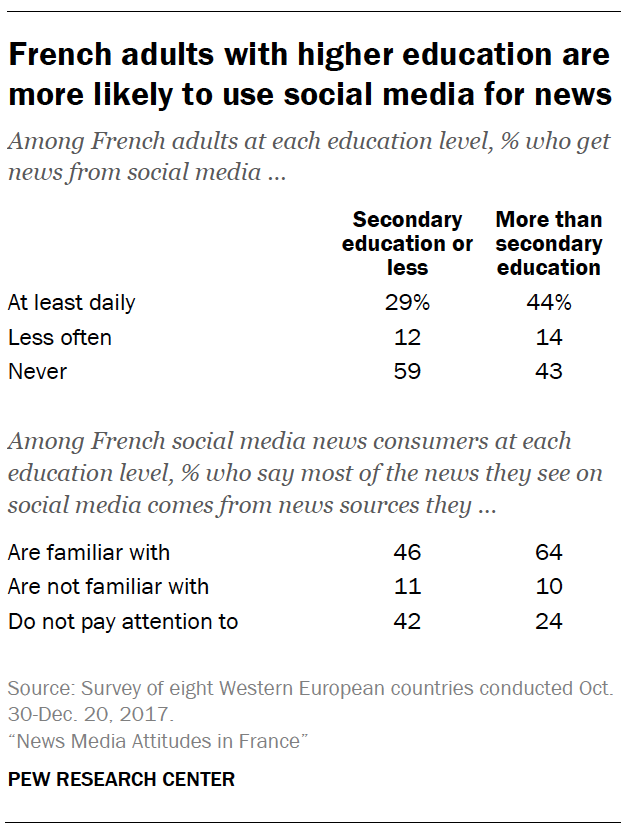 The frequency of and attitudes around social media news use also differ by education. Among French adults with more than a secondary education, 44% get news at least daily from social media, compared with 29% of adults with a secondary education or less.
The frequency of and attitudes around social media news use also differ by education. Among French adults with more than a secondary education, 44% get news at least daily from social media, compared with 29% of adults with a secondary education or less.
Among social media news consumers, those with higher levels of education are more likely than those with lower levels of education to say that most of the social media news they encounter comes from sources that are familiar to them (64% and 46%, respectively). In contrast, those with lower education levels are more likely to say they do not pay attention to the news sources on social media (42%) than those with more education (24%).


